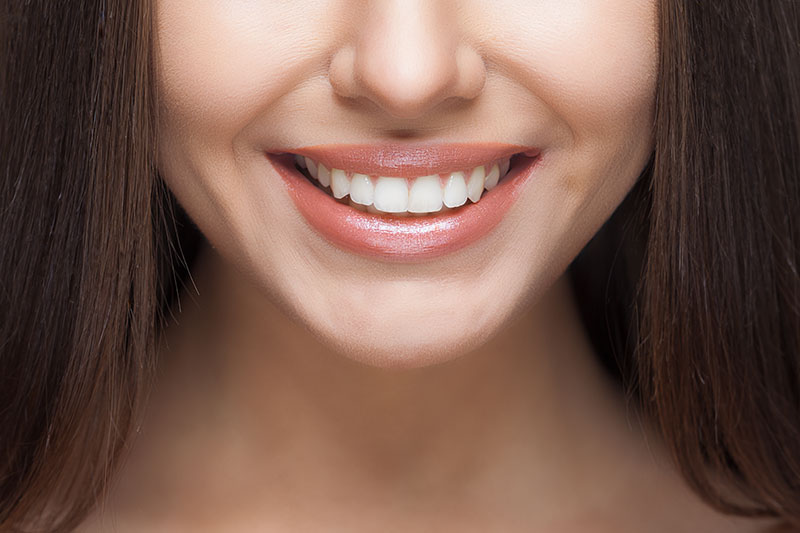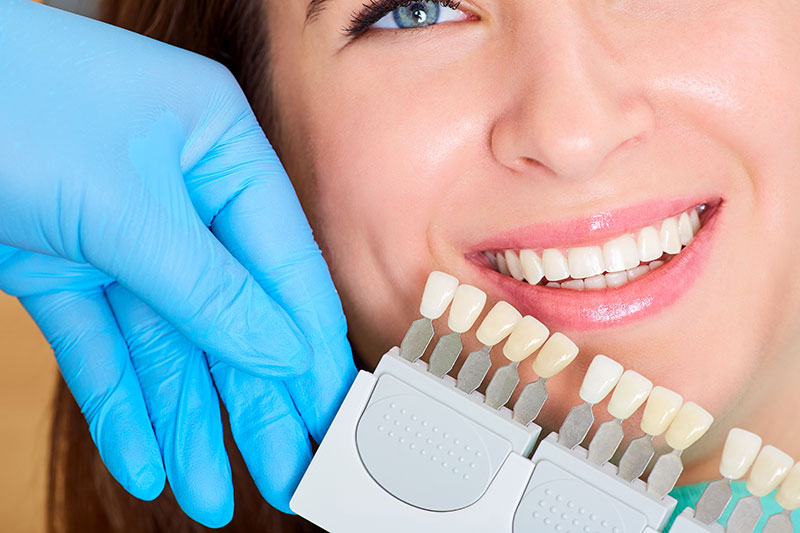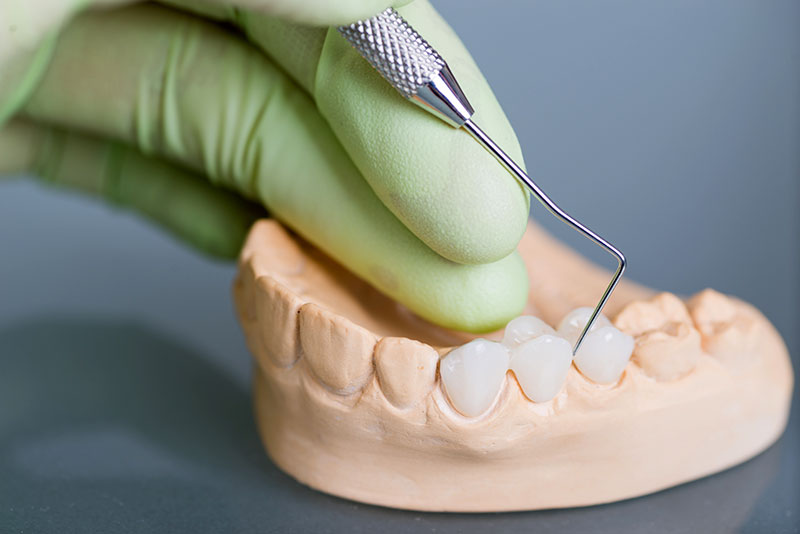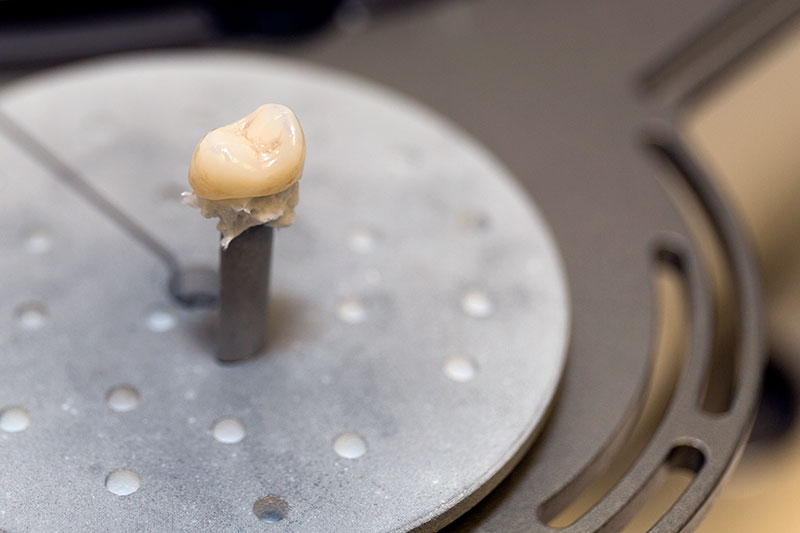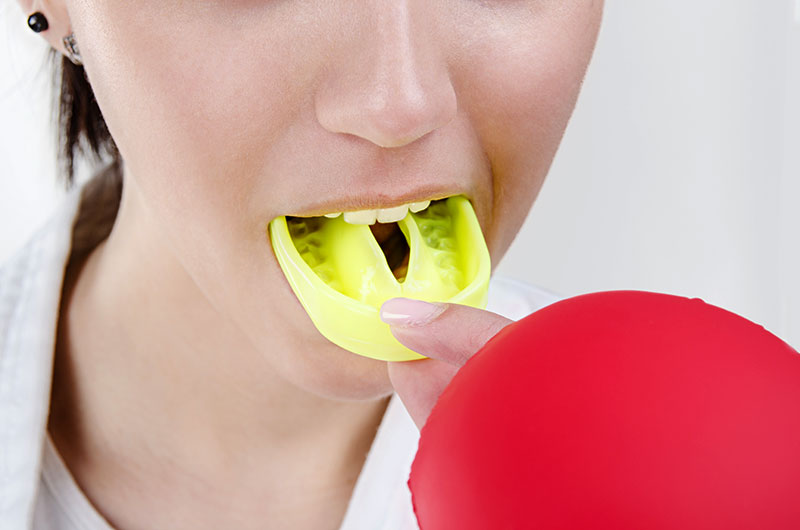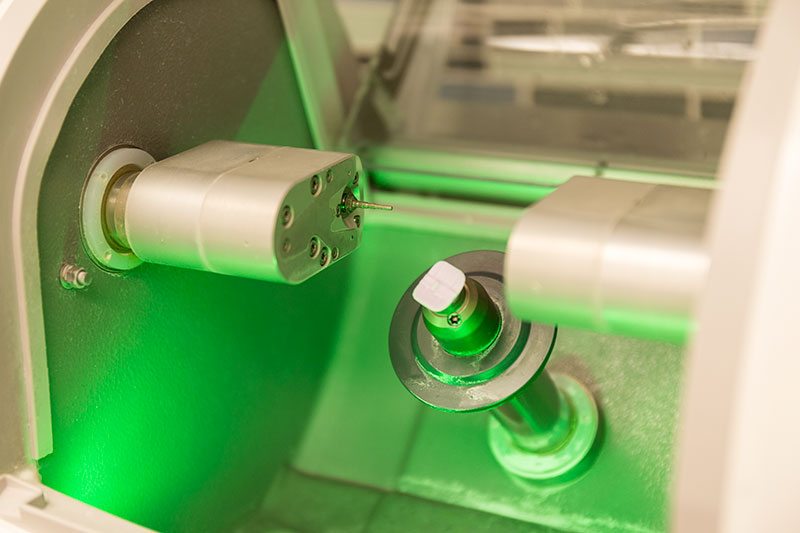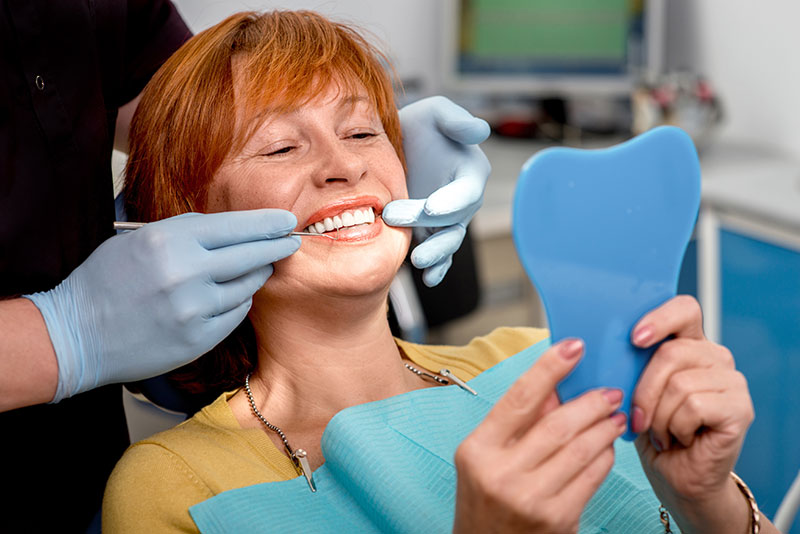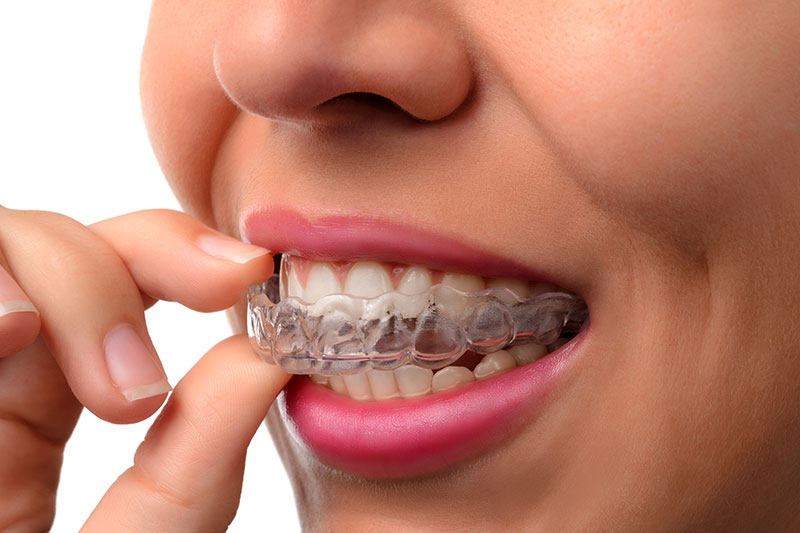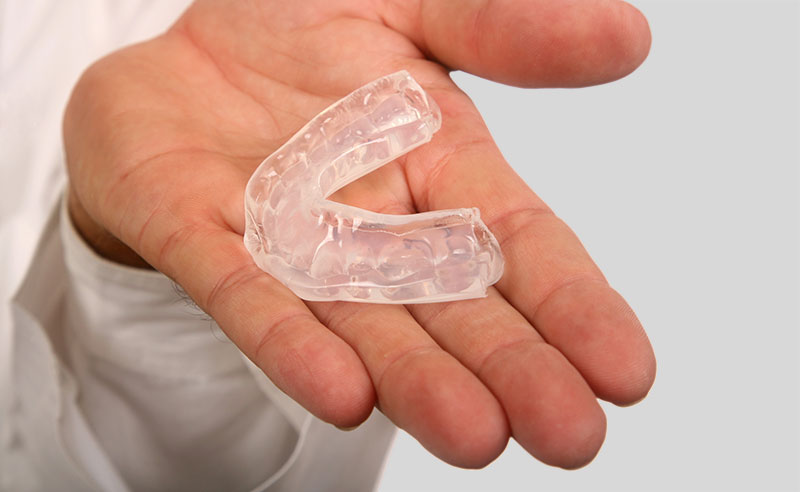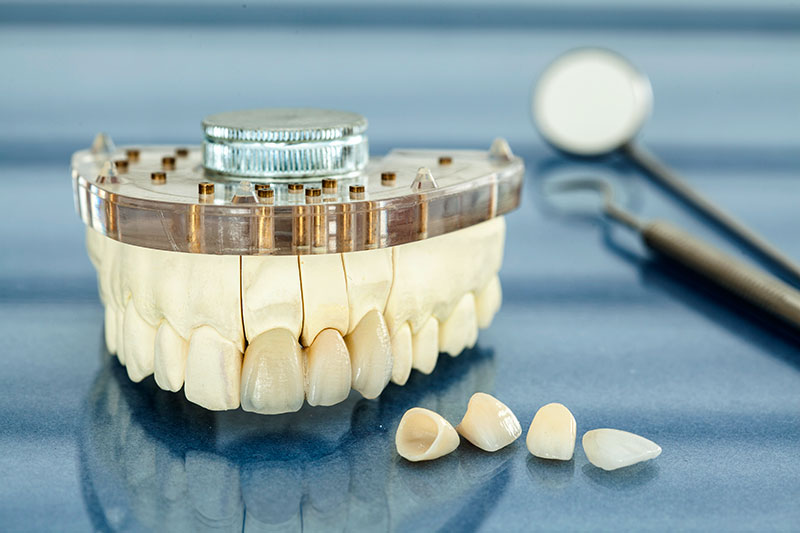Bleaching
Tooth whitening, or bleaching, is a simple, non-invasive dental treatment used to change the color of natural tooth enamel and is the easiest and most cost-effective way to enhance the beauty of your smile. There are a number of ways to whiten teeth. We offer BriteSmile, an in-office procedure that combines the use of hydrogen peroxide gel and a blue lamp that has been specially designed for accelerating the process of teeth whitening. We also offer a take-home method for whitening using custom-made bleaching trays, and Crest Whitestrips.
Since tooth whitening only works on natural tooth structure, it is important to evaluate old fillings and crowns before bleaching is begun. It may be necessary to replace some older fillings after the treatment to make the newly bleached teeth. Also, teeth that have been whitened may tend to darken over a period to time depending on daily habits, and a touch-up may be needed to re-whiten.

